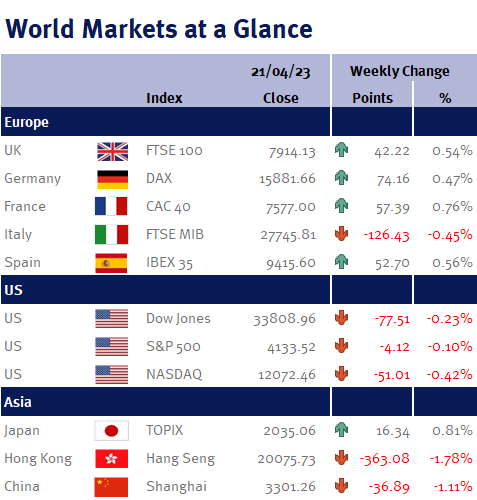Today’s (Friday 21 April 2023) PMI readings from the US, UK and Eurozone for April all came in higher than March’s readings and ahead of economists’ forecasts: at 53.5, 53.9 and 54.4 respectively. 50 is the line separating expansion and contraction, which suggests that not only are these economies recovering, but more importantly, their recovery is accelerating.
Unfortunately, this is likely to give central bank policymakers the confidence to continue with their aggressive interest rate increases.
However, one saving grace came from Silvana Tenreyro, a BoE policymaker – and we wonder if Silvana Tenreyro is a reader of our Weekly Market Updates, as she compared her BoE colleagues to being a “fool in the shower”, as we have used Milton Friedman’s “fool in the shower” analogy many times over the past few months (for an example, please see here and here).
This is where a person gets burnt by hot water after they turn the hot water all the way up given the shower water initially comes through cold – and we believe that central bank policymakers in the US, UK and Eurozone are all guilty of being too aggressive in increasing interest rates in such a short period of time, they clearly haven’t taken into account the impact of their previous increases (as these can take time to fully filter through, just like hot water in a shower).


